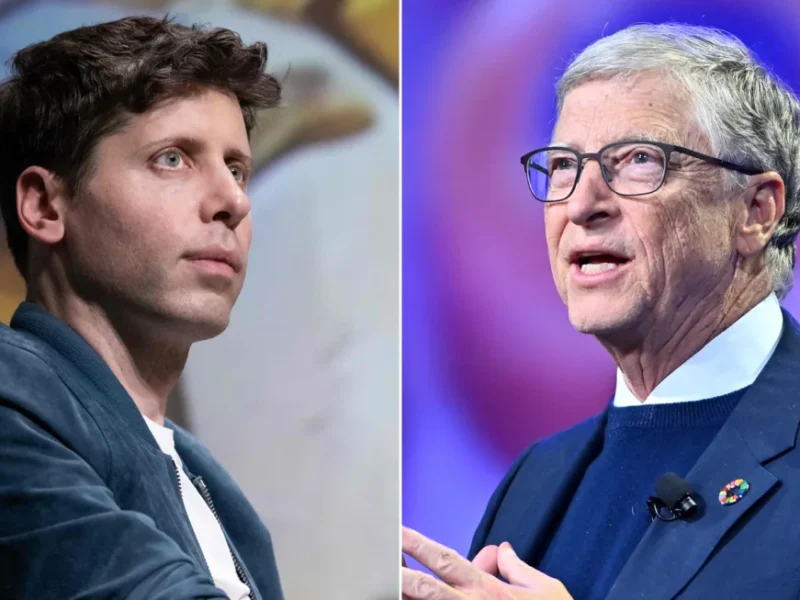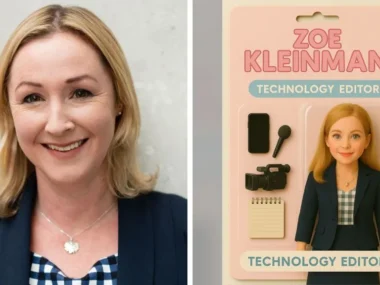Sam Altman, known for his role as CEO of OpenAI, is also the chairman of Oklo, a company focused on developing nuclear power technology. This venture aligns with Altman’s and other tech leaders’ belief that nuclear energy will be crucial for powering the future advancements in AI. As data centers, which support digital infrastructure and AI, consume increasing amounts of energy, there are concerns that power demand could soon outpace supply.
While tech giants highlight nuclear energy as a reliable and climate-friendly energy source, some experts question whether these investments truly benefit the broader public or mainly safeguard the operations of tech companies. Sharon Squassoni, a nuclear energy policy expert, notes that the tech industry is focused on protecting its own interests, leaving the broader accessibility of nuclear energy in question.
Electricity demand in the U.S. has surged, with data centers alone accounting for 4% of the nation’s energy consumption, a number that could rise to 9% by 2030. This increase, along with overall growing energy needs, may make electricity a more scarce resource, which poses a challenge to the tech industry’s sustainability goals.
Tech companies, however, argue that nuclear energy offers the stability required to meet the 24/7 energy demands of data centers, unlike solar or wind energy, which depend on weather conditions. Companies like Microsoft, Amazon, and Meta have begun securing nuclear power deals to ensure a stable energy supply for their operations.
Altman’s interest in nuclear energy extends beyond Oklo; he has also invested in Helion Energy, a nuclear startup with a different technological approach. Other tech leaders, such as Facebook co-founder Dustin Moskovitz, LinkedIn’s Reid Hoffman, and Peter Thiel’s venture firm Mithril, have invested in Helion as well.
Additionally, Bill Gates, through his company TerraPower, is backing a new nuclear reactor project in Wyoming, while Google, Amazon, and Jeff Bezos are also investing in various nuclear startups like TAE Technologies and X-energy.
Oklo’s investors include notable figures like Peter Thiel’s Mithril, which owns a 5.3% stake in the company, and Ark Invest, led by Cathie Wood. Chris Wright, CEO of Liberty Energy, also serves on Oklo’s board.
The drive for nuclear energy.
Lawmakers are already backing the expansion of nuclear power. In July, President Joe Biden signed the Advance Act into law, which aims to streamline the permitting and construction process for new nuclear reactors, receiving bipartisan support. At this year’s COP28 climate summit, the U.S. joined over 20 nations in a pledge to triple global nuclear energy capacity by 2050. Some experts view the tech industry’s investment as key to advancing nuclear power, an expensive but clean energy source that could aid in tackling climate change.
“As we know, the AI leaders are the ones with the financial resources,” said Erickson.
Megan Wilson, Chief Strategy Officer at General Fusion, explained to CNN that the tech sector’s growing interest in nuclear energy reflects the widespread acknowledgment of the need for clean, reliable, and affordable baseload power that does not emit carbon dioxide or methane.
While General Fusion is still testing its technology, Wilson noted that fusion is expected to be safer than fission, as it involves combining atoms rather than splitting them, making it “very difficult to initiate and very easy to halt.”
In the future, the company anticipates its power plants will have a radiation profile similar to that of hospitals using medical isotopes or running cancer treatment wards.
However, some experts are concerned about the significant investments by industry leaders who have a history of resisting regulations that might hinder progress, even when those regulations are designed to enhance safety.
“The issue is that Silicon Valley giants have the influence to push for what they want… and the industry’s primary approach is to oppose any regulations that might disrupt their plans,” said Edwin Lyman, Director of Nuclear Power Safety at the Union of Concerned Scientists. “I’m worried that safety and security regulations essential to public protection could be severely compromised,” he added.
Oklo and TerraPower did not respond to requests for comment.
Altman’s Oklo
Founded in 2013 by two MIT graduates, Oklo is developing advanced nuclear reactors aimed at producing “abundant, affordable, clean energy on a global scale.” The company’s name is derived from the Oklo region in Gabon, where scientists discovered the world’s only known natural nuclear reactor, which existed around 2 billion years ago.
Oklo is designing “fast reactors” that can generate more power from less fuel, making them smaller and more cost-effective. These reactors could also recycle spent nuclear fuel from other plants. The company plans to sell power generated from these smaller reactors directly to customers, such as data center operators, potentially providing on-site energy.
AI is expected to revolutionize technology in the coming decades, and according to Oklo CEO and co-founder Jacob DeWitte, nuclear fission is ideally suited for this transformation due to its reliability, scalability, and cleanliness.

Oklo aims to develop smaller, more efficient nuclear reactors that could be placed in A-frame buildings, with the possibility of being co-located with data centers, as depicted in this rendering.
Oklo’s stock has doubled since it began trading in May, following its merger with AltC Acquisition Corp., a special purpose acquisition company led by Altman. This strong stock performance comes amid growing AI-driven demand for nuclear power, although Oklo has not yet turned a profit.
Despite this, Oklo reports progress toward its goals. In September, the company received approval to start site investigations for one of its small reactors in Idaho and has secured agreements to sell future power to data center operators.
However, these small modular reactors are still in the conceptual stage, with a long and costly path ahead before they can generate and sell power, according to Squassoni.
Other recent U.S. efforts to build new nuclear reactors have faced delays and budget overruns. Additionally, the U.S. is grappling with challenges in securing enough fuel to power new reactors due to restrictions on enriched uranium imports from Russia, following its invasion of Ukraine. The U.S. government is searching its own nuclear stockpile for sufficient fuel while working to ramp up domestic fuel enrichment.
Gates’ TerraPower
In June, Gates’ TerraPower began construction on its nuclear reactor “demonstration” plant, which it aims to have operational by 2030. Currently, construction in Kemmerer, Wyoming, is focused on non-nuclear components as the project awaits full regulatory approval.
TerraPower claims its reactor design is smaller and more straightforward than conventional ones, using sodium for cooling instead of the traditional water-based systems. The plant is being built near an aging coal power plant and is expected to supply power to PacifiCorp, the utility company that has depended on the coal plant.

On January 12, 2022, steam rose from the stacks at the Naughton Power Plant in Kemmerer, Wyoming. The plant is scheduled to shut down in 2025, and TerraPower has revealed that Kemmerer will host a demonstration nuclear reactor.
Like Oklo’s design, TerraPower’s reactors are equipped with “passive” safety features, which are designed to automatically cool the reactor if something goes wrong, preventing disasters like the 1986 Chernobyl incident.
Bill Gates has stated that he founded TerraPower and invested over $1 billion because he believes expanding nuclear energy is crucial in the fight against climate change.
“This is a major step toward safe, abundant, zero-carbon energy,” Gates remarked during the groundbreaking ceremony for the Wyoming plant in June. “It’s vital for the future of this country that projects like this succeed.”
However, TerraPower and other nuclear startups still face the challenge of convincing the public that their advanced designs are both feasible and safe.
“The industry has been pushing for fewer regulations and faster processes, and the Trump administration certainly tried to expedite things and reduce some regulations,” Squassoni noted.
In a June interview with NPR, Gates addressed nuclear safety concerns, emphasizing that the company embraces regulatory scrutiny. “The Nuclear Regulatory Commission is the best in the world, and they’ll question us and challenge us. And, you know, that’s fantastic,” he said.











